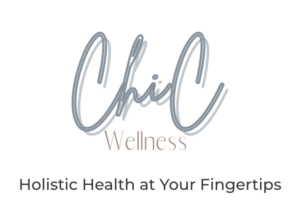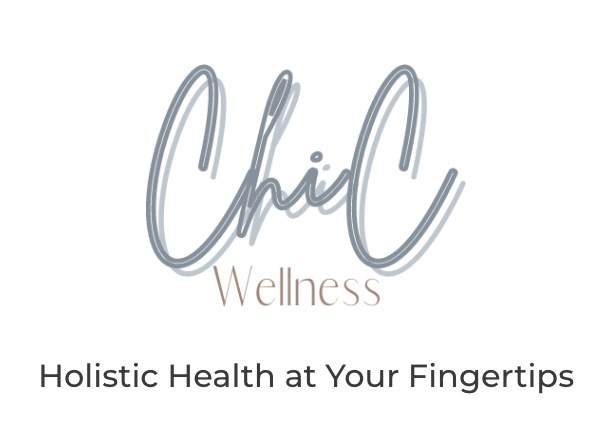A person’s body constitution determines whether or not they are vulnerable to various illnesses. Our physical constitution is influenced by both inborn (genetic, inherited) and acquired variables. Understanding our specific bodily composition may lead to more successful illness treatment and prevention via lifestyle modifications, which is especially true for acquired elements. The recent trauma of probable exposure to a highly infectious virus, lives abruptly disrupted as a result of a global lockdown, and enormous uncertainty in our environment are all external causes beyond our control.
According to TCM and those who provide TCM treatment, each of us has distinct anatomical, physiological, and psychological characteristics as a result of these inherited and acquired factors. These separate components combine to produce our physical constitution, which in turn influences how we live and act, as well as our vulnerability to infections such as viruses (e.g., Covid-19) and disease development. The recent trauma of suspected COVID-19 virus infection, lifestyles abruptly disrupted in the midst of a global lockdown, and unprecedented uncertainty in our society are all variables that might impact how we feel emotionally and physically. These are excellent instances of external factors that might modify our constitution. Other variables influencing our constitution include:
- Gender – there are various physiological distinctions between men and women that affect bodily constitution. Men, for example, are more yang in TCM, which symbolizes Qi (warm, outward energy), while women are more yin, which represents blood (cooling, inside) energy.
- Age – As we become older, our bodies’ architecture, functions, and metabolism change.
- Mental state — we’ve spoken about how emotions may impact various organs in previous presentations, and bodily constitution is no exception. How have we dealt with the COVID-19 pandemic?
- Various climates and geographies may lead to different lifestyles, which might have an affect on constitution.

The composition of the body varies from individual to person. Some individuals are bright and enthusiastic, while others are frail and frightened. Some people are hot, while others are chilly. Body constitution may be classed into nine groups depending on physical body, personality, frequent health concerns, and response to external environment.
Body Type: Neutral: Yin, Yang, Qi, and Blood are all in harmony.
Physically healthy and powerful, Emotionally secure and optimistic about life, Healthy skin and hair, as well as sparkling eyes, Normal bowel motions and a good appetite He sleeps comfortably. It does not feel very hot or chilly.
Qi (vital energy) Deficiency
Qi deficiency is a term used to describe a single organ or system’s life force / energy being comparatively weak in comparison to others. Heart qi deficit, for example, indicates that the heart energy is weak, which might manifest as weariness, lassitude, or even palpitations. Spleen qi deficit is a diagnosis that indicates a weak Spleen-Pancreas system, which can manifest as gas, bloating, loose stool, and weariness.
In certain circumstances, such as continuous insomnia, there may be an overall qi deficiency, but in most cases, there is a combination of excesses and deficiencies. For example, one typical diagnosis is Liver (extra) with Spleen (deficiency). This is known as “liver overacting on spleen,” and it means that stress and poor liver function are impairing digestion (spleen-pancreas matrix).
Soft muscular tissue is more common. Introverted and fearful, Shortness of breath, a hoarse or weak voice Fatigue, prone to colds and flu, sweating without activity on a regular basis Teeth marks on the tongue’s edge, sensitive to changes in the environment, stools that are overly loose or constipation that lasts for a long time, It frequently takes a longer time to recover from infections due to relatively poor immune functioning.
Foods to Avoid: Foods and herbs that MOVE qi or blood should be avoided. These are mostly pungent foods such as garlic, onion, leeks, peppermint, and ginger. Because these foods increase perspiration, they are excellent for expelling wind, but they should be used with caution if there is considerable qi deficiency.

Oatmeal, steamed sweet apples, cooked vegetables, sweet potatoes, pumpkin, salmon, poultry, cinnamon, clove, coriander, fennel, garlic powder, ginger are all fantastic diet foods.
Candy, celery, dairy, raw vegetables and salads, frozen meals, and juices are all diet no-nos.
Yang Deficiency
Yang is symbolized by the fire element: Yang is the body’s fire. The processes of life would not exist without fire, which is why when your yang is depleted, you die. Life slows and eventually comes to a halt when the yang fades with age.
A yang shortage would typically manifest as a feeling of coldness or sluggishness. Yang deficiency manifests as all-day lethargy and tiredness, a dull demeanor, and listlessness. A person who is not emotionally engaged in life may have a yang deficiency. Poor libido and low back or knee discomfort are other physical indications of yang deficiency.
To strengthen the yang, eat foods that tonify the yang. In general, yang tonic foods are warm or hot – but don’t overdo it. Certain foods and botanicals have near-mythical yang tonifying properties. Yang tonics are also thought to improve vigor and longevity, hence extending life. Exercising also boosts fire and yang energy.
Muscle weakness Quiet and introverted personality, Complain of freezing hands and feet, as well as a cold sensation in your stomach. Sensitive to chilly temperatures or loud sounds Sleep deprivation, Discomfort after eating cold meals, Pale and bloated, with a hefty tongue Uncomfortable in windy, chilly, and humid conditions, Susceptible to health issues such as puffiness, diarrhea, and excessive throat secretions
Foods to Avoid: Foods to avoid mostly include those that produce dampness, such as raw foods, cold foods, sweet foods, rich foods, and excessive fluid consumption. Dairy goods, pork, rich meat, roasted peanuts, saturated fats, concentrated orange juice and tomato juice, beer, yeast, bread, wheat, bananas, sugar, and sweeteners are all extremely dehydrating.
Diet do’s: meals with warm energy and sweet and pungent aromas are suitable. Warming foods such as ginger, pumpkin, almonds, beef, poultry, chives, leeks, lamb, cherry, raspberries, soups, and teas

Cold energy foods such as crab, cucumbers, and melons, raw salads, cold meals and drinks, smoothies, and difficult-to-digest fibrous foods are all diet no-nos.
Yin Deficiency
Yin deficiency is mainly caused by not obtaining enough deep slumber, although it can also be caused by food abnormalities. In Chinese medicine, yin is associated with the water element, thus if the yin is deficient, nourish the water.
Night sweating, feeling hot at night, tidal fever, palm heat, and palpitations are all symptoms of yin deficit. If you’ve ever stayed awake for 24 hours straight, you’ve obviously had yin deficiency. According to Chinese medicine, “yin is the foundation of blood, and blood is the physical manifestation of yin.” As a result, certain symptoms of yin deficiency and blood insufficiency may overlap, such as night sweating and hot flashes.
Advanced blood insufficiency mixed with empty heat can cause steaming bone condition, a severe sort of deficiency symptom. This patient is heated at night, may feel “burned out,” and has a heat sensation originating from the bones themselves.
Foods that feed the yin will also feed the blood, and vice versa. Choose foods that are cooling, hydrating, and high in magnesium to replenish the blood and yin, such as juicy fruits and dark leafy greens.
Cuisine to Avoid: Foods to avoid primarily include spicy and pungent foods. Spicy foods increase sweating and mineral excretion, resulting in dryness and mineral excretion. Pungent motions have a blood moving characteristic to them, and anything that moves the blood eventually exhausts it.
Individuals usually have a thin physique, are outgoing and impatient in personality, Complaint about warm palms and soles, dry mouth and nose, Preference for cold drinks, dry stools or constipation, Often feel uncomfortable in hot and dry environments., They are susceptible to cough, Tend towards fatigue, insomnia, and some chronic conditions, Tongue will often be red, or peeled, or geographic
Diet do’s: cooling foods or those with bitter flavor like celery, mushrooms, kale, spinach, beans, melon, lettuce, watermelon, grapefruit, tomatoes, egg, duck, fish, pear, apple, and pomegranate.

Diet don’ts: pungent, spicy and fried foods, alcohol is pungent and hot in nature, other warming foods and spices like ginger, peppers and heavy proteins
Phlegm Damp Type Body
Phlegm refers to a more sticky buildup of wetness. Phlegm can affect specific organs such as the gallbladder, lungs, and so on. Phlegm also easily combines with heat or cold, resulting in a state known as ‘phlegm heat,’ and so on. They are more likely to be overweight and have a larger stomach. Stuffiness in the chest, a sense of weight in the body, sluggishness Sticky or sweet taste in the mouth, as well as a greasy tongue coat Throat secretions or phlegm production that is excessive, Sweaty, Preference for high-fat and high-sugar meals Mild, consistent, and patient personality Uncomfortable in humid or wet conditions, Diabetes, metabolic syndrome, and cardiovascular disease are all risks.
Dampness accumulates in the body over time as a result of the body’s inability to “burn off” or change moisture. Dampness can be caused by germs that have become stuck in the body and have not been effectively removed.
Foods to Avoid: Foods to avoid mostly include those that produce dampness, such as raw foods, cold foods, sweet foods, rich foods, and excessive fluid consumption. Dairy goods, pork, rich meat, roasted peanuts, saturated fats, concentrated orange juice and tomato juice, beer, yeast, bread, wheat, bananas, sugar, and sweeteners are all extremely dehydrating.
Celery, coriander, spinach, radish, onion, carrot, cucumber, olives, barley, red beans, pear, goji berries, papaya, seaweed, grape, hops, plum, and yams are all good for you.

Diet no-nos include oily, fatty meals and sweets.
Phlegm Heat Body Type
There are four types of heat: full heat, empty heat, excess heat, and deficient heat. Heat can have an effect on specific organs such as the heart, gallbladder, lungs, and so on. Irritability, outbursts, sleeplessness, agitation, restlessness, and pain are only a few of the symptoms of heat.
Heat can stay in the body and coexist with cold in other places of the body. Inadequate rest can result in empty heat (ie “burning the midnight oil”). Heat might build up as a result of fire habits such as strong drinks, smoking, or excessive use of a hot tub or sauna. Heat is also tied to genetics in several ways. Some people have a fire personality or a fire body type. People who are prone to fire are more vulnerable to being burned by heated foods and herbs.
Normal or slender physique, face that is oily and prone to acne or pimples a bitter or metallic sensation in the mouth Irritated and irritable, Feelings of heaviness throughout the body, Feelings of incomplete bowel movements or dry stools a proclivity for ulcers, skin problems, and urinary difficulties Yellow urine, Excessive vaginal discharge, greasy tongue coating, Sensitive to humid and hot environments, especially in late summer and early fall.
Foods to Avoid: Spicy foods are among the foods to avoid. It depends on your diagnosis if you should avoid foods that are mildly spicy, such as turmeric and ginger. For further information, consult a professional Chinese Herbs and Nutrition practitioner. It is also critical to allow your meal to cool before consuming it. Heat can also be caused by several vitamins and medicines.
Diet must-haves include tomato, beans, cucumbers, celery, cabbage, kelp, duck, watermelon, and bananas.
Lamb, ginger, chili pepper, and garlic are diet no-nos.
Blood Stagnation Body Type
Skin that is dull and grey, Spots on the face, dark red lips, and dark bags beneath the eyes are all symptoms of acne. Impatience, irritability, and forgetfulness Bleeding and bruising, varicose veins, abnormal growths in the body, and physical aches are all possibilities. In chilly temperatures, it is often unpleasant.
Radish, carrots, onions, celery, eggplant, mushrooms, papaya, peach, mango, green tea, and wine are all good for your diet.
Greasy and frozen meals are diet no-nos.

Qi Stagnation
Individuals are generally slimmer. Emotionally unstable, sad, or suspicious Swings in mood, Frequently appear with a sad mood, nervousness, and irritability. Anxious and often timid, Heart palpitations, frequent sighs Insomnia and digestive issues are possible. When confronted with a challenging circumstance, Aversion to the seasons of fall, winter, and rain, Breast lumps are a risk.
Diet must-haves include radishes, onions, garlic, wheat, citrus fruit, seaweed, and kelp.
Tea and coffee are diet no-nos.
Special Constitution Type
a proclivity towards inborn frailty, Inherited sensitivity to medications, foods, odors, pollen, or other environmental allergens Allergies that affect the respiratory system are common, resulting in nasal congestion, sneezing, runny nose, panting, hives, itching, and even purple spots or patches beneath the skin. Drug allergies, hay fever, eczema, and asthma are all common health issues among people. Because of their relatively low sensitivity to external factors, seasonal variations may readily cause health concerns.
Diet must-haves include honey, carrots, mushrooms, salmon, tofu, eggs, apples, apricots, coconut, dates, lemon, and nuts.
High-protein meals, alcohol, chili pepper, coffee, tea, and buckwheat are all diet no-nos.
The goal of food selection based on physical constitution is to balance the body’s yin and yang. A person with a hot body constitution, for example, should consume cold energy food to lower the excessive internal heat. This contributes to the creation of a more neutral constitution by balancing the internal environment and the physical constitution.

It should be noted that, in fact, we humans are more complicated and often appear with a mixed type; for example, yin deficiency and damp-heat, qi deficiency and moisture, qi stagnation and blood stasis are all prevalent combinations. For the majority of individuals, visiting a TCM practitioner is the best approach to determine your body type. It’s also crucial to realize that a person’s physical constitution is not constant and immutable, since elements such as living environment, mental state, nutrition, daily activities, and illnesses may all have an impact on the body’s condition. We may take active steps, such as lifestyle changes, diet, or exercise, to bring the body to a more neutral and healthy condition for those with poor constitutions. Taking charge of your health based on your bodily constitution type is an essential aspect of TCM. I hope this helps you think about your choices and if they are in line with your body type. You may be amazed at how little dietary adjustments can significantly improve your mood!
I wish you a happy and healthy week!
About The Author

My mission is to bring greater awareness about the power of the ancient wisdom, art, and science of Traditional Chinese Medicine (TCM) and to teach people that there is a better and more sustainable way to reach the best version of themselves. I inspire and lead others using accountability practices that allow others to take greater responsibility for their health and wellness. I want everyone to be a willing participant in the lifestyle changes that may be necessary to reach optimal and sustainable health.
DISCLAIMER
This Information provided by AntonikaChanel LLC on Antonikachanel.com is for general informational purposes only. Everything material on the Site is supplied “entirely”. We make no representations or warranty of any sort, regarding the adequacy or completeness of the content. This website is under no responsibility for any loss or damage arising from the use of this site or reliance on any information provided on the site.


